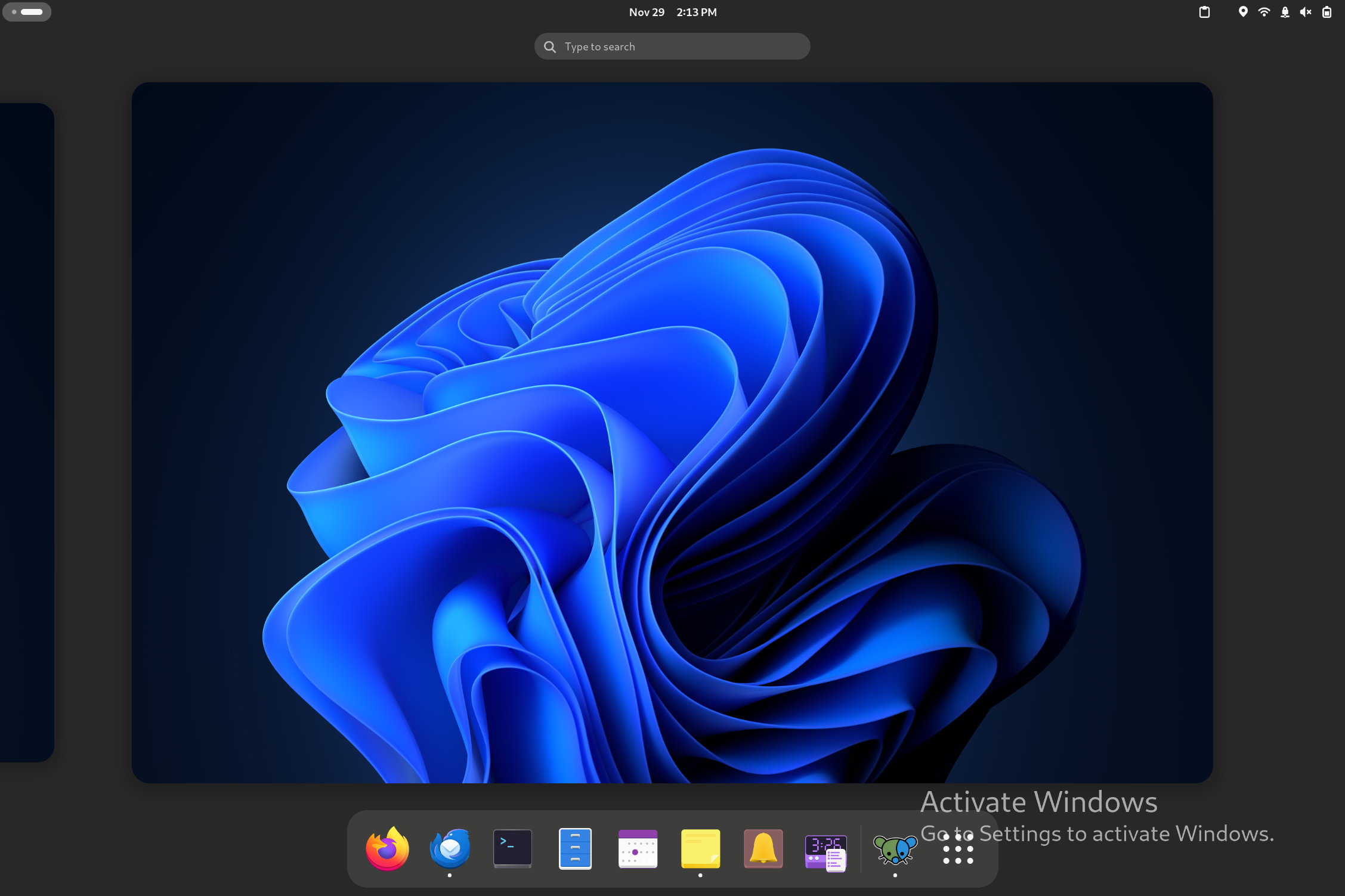this post was submitted on 29 Nov 2023
234 points (95.0% liked)
linuxmemes
24742 readers
1334 users here now
Hint: :q!
Sister communities:
Community rules (click to expand)
1. Follow the site-wide rules
- Instance-wide TOS: https://legal.lemmy.world/tos/
- Lemmy code of conduct: https://join-lemmy.org/docs/code_of_conduct.html
2. Be civil
3. Post Linux-related content
sudo in Windows.4. No recent reposts
5. 🇬🇧 Language/язык/Sprache
6. (NEW!) Regarding public figures
We all have our opinions, and certain public figures can be divisive. Keep in mind that this is a community for memes and light-hearted fun, not for airing grievances or leveling accusations.Please report posts and comments that break these rules!
Important: never execute code or follow advice that you don't understand or can't verify, especially here. The word of the day is credibility. This is a meme community -- even the most helpful comments might just be shitposts that can damage your system. Be aware, be smart, don't remove France.
founded 2 years ago
MODERATORS
you are viewing a single comment's thread
view the rest of the comments
view the rest of the comments

No it's actually a 3 month overdue meme about them restricting the source code behind user agreements
I like the meme but the most hilarious aspect of the saga to me is still that Oracle got out on a stage and with a straight face proclaimed that they are the bastion of openness for freeloading RHEL source code to make Oracle Linux. That shit never gets old.
I have no love for oracle, but in general the only freeloaders in FOSS development are companies that use the work of a whole ecosystem of unpaid developers and then use loopholes to restrict access.
"Lazy clones" are vital to maintaining the interoperability and openness that make RHEL (or any other corporate distro) attractive and keep them accountable for anticonsumer practices, preventing enshittification. Only when the company starts actively harming their product, or trust is lost, will clones hurt sales.
If they want a proprietary OS, they can build it themselves. The value proposition has always been in the support and service ecosystem and infrastructure provided by the corporation. Only when the company starts actively harming their product, or trust is lost, will clones hurt Red Hat's business.
My university uses Rocky. If it didn't exist, they would probably just use debian. Because it does exist, hundreds of students will be exposed to and learn to use enterprise linux, and will likely contribute to its corporate user base at companies that require RHEL.
If they kill clones, they are killing the on-ramp and ecosystem that makes their paid offerings so dominant. Students will learn something else, developers would deprioritize rpm, making their paid products less attractive.
It's ludicrous to suggest that Red Hat, who funds more open source work than any other company, is "freeloading" just because you don't like their subscription terms. There are a lot of words to describe how you feel about those terms, but "freeloading" just ain't it.
RHEL clones are not vital to RHEL interoperability or openness. They're not even relevant to these things. They may like to tell people they are, but it's bullshit. RHEL's interoperability comes from Red Hat's upstream first policy. Improvement made by Red Hat get pushed upstream, both to software projects (e.g. linux, gcc, httpd, etc.) and to distro projects (e.g. Fedora and CentOS). RHEL's openness is based on the fact that it is open source. RHEL clones could all disappear tomorrow and it won't affect these aspects of RHEL.
Red Hat's value proposition isn't helpdesk style "support me when something breaks" support like you're suggesting here. It's not something that only exists during incidents. It's an ongoing relationship with the vendor that builds the platform that you're building your business on. It's being able to request and influence priority of features and bug fixes.
Clones going away wouldn't hurt the free on-ramp to RHEL because the free developer subscription exists now. It's a better on-ramp than a clone ever could be because it's actual RHEL, and includes additional products. People like students that don't need the exact product, just something close enough, can still use and learn on CentOS or Fedora. Developers aren't going to de-prioritize RPM any worse than they already do.